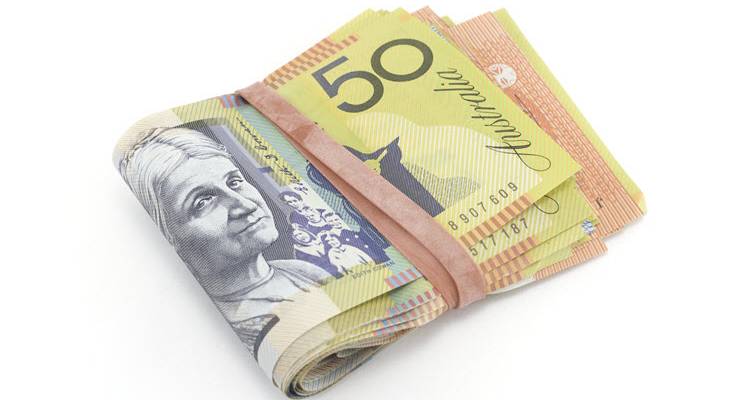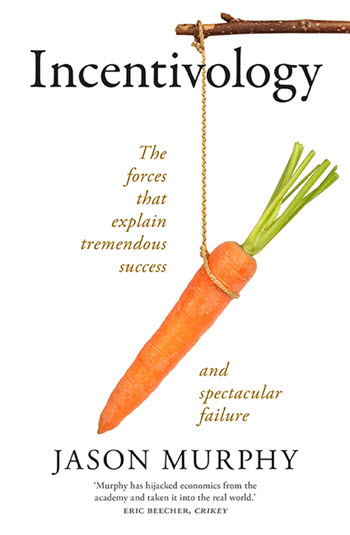
Prices were a feature of human society from the beginning. When archaeologists uncover the earliest pieces of writing, they usually turn out to be invoices. One notable such piece is from 5000 BC, from ancient Mesopotamia — a receipt for clothing written in cuneiform script pressed into clay.
The co-evolution of prices and civilisation is, some say, not a coincidence. One philosopher says we “stumbled upon” the system of prices “without understanding it”. That was the famous economist Friedrich Hayek. He argues it was very lucky because it allowed humans to best organise our societies and economies — that is, that prices allowed civilisation to develop.
Doesn’t he have the causation back to front? Doesn’t civilisation cause prices, not the other way round? Hayek says no:
The people who like to deride any suggestion that this may be so usually distort the argument by insinuating that it asserts that by some miracle just that sort of system has spontaneously grown up which is best suited to modern civilisation. It is the other way round: man has been able to develop that division of labor on which our civilisation is based because he happened to stumble upon a method which made it possible.
This is a big claim. But it’s one I agree with.
Hayek argues two things: that humans didn’t invent the price system on purpose, and that the blossoming of our civilisations depends on prices. That we are the beneficiaries of a happy accident. It’s entirely true that prices actually predate money. A price really just expresses the value of one thing in terms of something else. Even bartering required prices of a sort: one sheep for a pair of shoes, etc.
People bartered for all sorts of goods — from milk and bread that would only last a day, to long-lasting items like tools and raw materials. Bartering for long-lasting goods was probably a precursor to money — if it would last it could be saved and used to barter again later. But the invention of currency was like pouring petrol on the fire for the price incentive. Money, if you think about it, is just an IOU for a future barter with persons unknown. This is a huge step up.
Prices expressed in terms of money give us enormous freedom to trade with a much wider set of people. They allow us to trade more and trade better. Ultimately they allow us to stop being generalists and become specialists. The reason specialised jobs exist, like apple farmer, smiths and tailors, is that prices allow us to trade efficiently. We don’t have to grow our own apples, forge our own iron and sew our own clothes. And that makes life better. When we specialise, we can improve our work. When we trade what we make, everyone benefits from that improvement.
In part, cities grew up because the more customers you can find the more you can trade and the more you can specialise. The flipside is that living in cities gave you access to a bigger range of goods made by more specialised artisans. Prices coordinated that process. This is what Hayek was describing. The price system helped create our modern world, our civilisation.
Incentives and prices clearly have a lot in common. For a seller the system is simple: give up your item and get a monetary reward. If that monetary reward is high enough the seller will work to make the item in large quantities (or grow it, import it, etc.). They will also work to make that item cheaply.
For the buyer the incentive is just the reverse. Give up the money, get the good. So far, so obvious.
The interesting part is that the incentive can work in both directions at once — both buyer and seller are incentivised by the same price. That is because the buyer and seller put different subjective values on the good. For the seller, the good is worth less than the price and for the buyer the good is worth more than the price. These differences in how people subjectively value goods are necessary for trade. If everyone put the same subjective value on everything, nothing would ever change hands!
Prices work simultaneously as incentives on buyers and sellers. It prods both buyers and sellers in the same direction — to make a trade. If they aren’t selling enough, sellers will work to make prices lower. If they can’t buy enough, buyers will work to get more money. This double effect of prices is an especially serendipitous feature of an accidental incentive system. Not all incentives work on multiple parties at once and encourage them to cooperate.
The other reason the price incentive is so powerful is that it doesn’t require central coordination. Which is not to say that we don’t regulate some prices — nor is it to say we shouldn’t. But a price system can be relied on to spring into existence almost anywhere and to self-regulate. These features are extremely impressive and very surprising. But they don’t mean the price system is magical or above reproach. In fact, this very powerful system generates some powerful side effects.
This is an edited extract from Incentivology by Jason Murphy published by Hardie Grant Books $32.99 and is available where all good books are sold.









Hayek was a hard old bastard but someone worth reading at least a bit of.
My favorite bit was he reckons there’s only four forms of money in all the world and he ranks them by how carefully they’re spent –
1 Your own money spent on yourself
2 Your own spent on someone else
3 Someone else’s money spent on yourself
4 Someone else’s money spent on someone else
I’ve observed for decades now and I’d say he was pretty accurate.
No, prices were not “a feature of human society from the beginning – unless, as the author appears to believe, like all economists, that humanity began under the yoke of debt, like Original Sin.
He goes on to equate urbanisation with civilisation (etymologically, but not culturally, accurate ) because otherwise the entire, outdated edifice of his, and his idol, Hayek.
Were it not for the mass of unpaid/undervalued work of those ignored by capitalism, it might be a bit difficult to eat money which is not noted for its nutrient value.
This article is a paean to serfdom which is what has reduced us to facing Crapocalypse, knowing the price of everything but the value of nothing that matters.
Sorry to seem like a fan AR but your posts are lighting up the screen.
Aye, second that. You started doping lately or summink, AR?
Yes, I’m going to have to go and buy JM’s book to scope his argument as a whole. My gut instinct doubts that the serf/slave/bondsman origin of labour as an economic structural component has any coherent place in a ‘price signal as civilising lever’ hypothesis. There’s also not much room in this teaser for the market-squiffing impacts of brute political power, tribal warfare, (as you say) mass starvation and other environmental factors, etc…though of course Jase being a Hayekian (again as you note) actual human activity and proclivity in any material realm is of no import!
Still, that description of price/money as delayed barter is quite elegant & even sexy and might well be the flexible glue that holds a ripping yarn together. I’ll post a fuller review in a bit…
“In fact, this very powerful system generates some powerful side effects.”
You mean like monopolies and ologopolies, and stupid (or, more likely, complicit) governments selling off our publicly-owned monopolies and oligopolies to the super rich who will return us all to a slave economy?
Ha,ha,ha, go Jason. You will enslave us all. Including your own grandchildren probably.
At least when Marx set out his labour theory of value using simple commodity production examples in chapter 1 of Capital, he was openly using a simplified abstraction. Here our economist simply ignores all historic exploitation and posits that simple commodity production was all we had before wage labour. The idea you have that prices are some telelogical cyber-plague from the future reaching into the past is weird, all commodity exchange is a relationship between humans, that is why you don’t pay wages to machines and farm animals. I bet you make boat money. Good fucking lord.